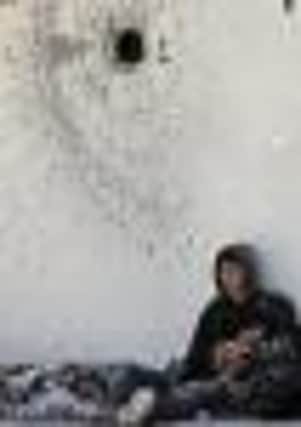Patrick Mercer: As Libya’s crisis and confusion grows, we face new chaos in the Middle East


In other words, with the French Presidential elections coming up, President Sarkozy is desperate to claw political credibility back in order to keep his job.
That’s why, with uncharacteristic Gallic magnanimity, the French have been so energetic in leading the air campaign in Libya and intervening in their former colony’s affairs. Cynical? Perhaps, but where does it leave Britain, our involvement in Libya and whatever else lies ahead?
Advertisement
Hide AdAdvertisement
Hide AdThe ebb and flow of battle in Libya is deeply confusing. The media would suggest an all-out, hammer and tongs land campaign with Gaddafi’s forces having seven bells kicked out of them one moment and then retaliating the next. The truth is rather different. Gaddafi’s forces have been seriously knocked about by the Allied air campaign and blinded in terms of radar and air defence systems.
Similarly, he’s lost a lot of tanks, but you don’t need missiles and armour to take on the rebels who, at best, are a deeply divided set of tribal factions with no common organisation, no military structure and united in one thing only – the removal of Gaddafi and his people.
As events show, they are desperately vulnerable even to a mob like the government forces.
Now, the thing of which there is no shortage in Libya is weaponry. Over the years, the regime has been armed by a number of different friends and allies and the hardware is there to be seen on every news report.
Advertisement
Hide AdAdvertisement
Hide AdNo, the rebels don’t lack guns. What they need is training, cohesion and leadership. In the past, when it has suited us, the West has not been shy of putting its people into the middle of insurgencies to provide all of these things, but in this case the UN resolutions strictly forbid Western military intervention by anything other than air power.
That’s why the media has been full of talk of the use of Arab proxies to do the work for us. Let’s face it, there’s nothing new in such a strategy; look at how we opposed the Russians when they invaded Afghanistan a few years ago. But that particular case is very instructive.
For instance, many of those whom we regarded as friendly Mujahadeen are now very competent Taliban leaders – and how many of the current Libyan rebels can we say that we know and trust well enough to think that they will never oppose us?
And that, of course, presupposes that an effectively-led rebel force will not carry out acts of barbarity against Gaddafi’s forces or, indeed, against civilians who are thought to have succoured them. If that were to happen then, under the UN mandate, we would have to turn our bombers about and attack the very people whom we have just been protecting.
Advertisement
Hide AdAdvertisement
Hide AdI had a taste of this in Bosnia, when we assaulted the Serbs – a nation who had always regarded the British as firm friends and allies.
No, with the widespread withdrawal of US forces from the campaign in Libya, I think we can look forward – if that’s the phrase – to a period of stagnation in Libya with the rebels forming a “homeland” in the East and the disputed border overseen by Allied aircraft.
I doubt if there’s going to be any quick fix there and neither do I see a peacekeeping force going in any time soon. Rather, we will have to harden our hearts to a stalemate and an expensive and dangerous one at that. And, in the meantime, Allied politicians must try not to be surprised by difficulties that lie just around the corner.
It is easy to be wise after the event and I challenge anyone to say that they knew what was going to happen among the Arab states until it actually did happen.
Advertisement
Hide AdAdvertisement
Hide AdNow, however, we’d been warned about potential problems in Syria, Bahrain and Yemen, not to mention other apparently “stable” countries.
And those crises could dwarf what we have seen so far for in Egypt, Tunisia and, indeed, Libya for in those countries, militant Islamists haven’t, yet, shown their hand.
But, take Yemen for example. President Ali Abdullah Saleh’s regime looks in imminent danger of collapsing in the face of three different insurgencies and an economy that is about to implode.
No matter how friendly Saleh may have been to the West, there is a very potent al-Qaida presence in his country which will use their host’s demise to fill the power vacuum not just there, but in any neighbouring nations.
Advertisement
Hide AdAdvertisement
Hide AdNow, if you remember how we put troops into Afghanistan in 2002 to prevent that “failed state” from becoming a nest for terrorists once more, then exactly the same logic must apply the Yemen and its neighbours.
If the Alliance thinks that it is busy at the moment and needs a serious rethink to cope militarily, economically and politically with the recent past, then I can only suggest that we ain’t seen nothing yet. The West will need a cool set of heads and hearts to influence what is going to happen over the next few weeks.
Patrick Mercer is a former solider and Conservative MP for Newark.